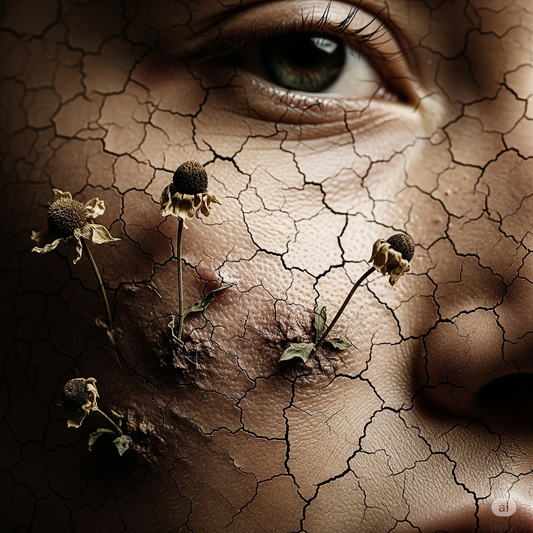The pursuit of healthy, glowing skin has led to a surge in the popularity of multi-step skincare routines. While these routines may offer benefits for the skin, they also raise significant environmental concerns. This article delves into the environmental impact of skincare usage, particularly the trend towards elaborate routines, and explores the issues consumers and the industry need to consider.
Reports claim that over 120 billion units of plastic packaging are introduced into existence every single year.
The Rise of Multi-Step Routines:
The modern skincare landscape is characterized by an increasing number of products and a growing emphasis on complex routines. From cleansers and toners to serums, essences, ampoules, moisturizers, and masks, a single routine can involve upwards of ten or more products. This trend is fueled by a combination of factors, including:
-
Increased awareness of skincare: Consumers are more informed about skin health and the potential benefits of various ingredients and products.
-
Marketing and advertising: The beauty industry has effectively promoted the idea that multiple products are necessary for optimal skin health.
-
Social media influence: Beauty influencers and online communities showcase elaborate routines, further driving the trend.
-
Lack of Personalization: The lack of customized skincare solutions tailored to individual needs has led to the use of multiple products targeting specific concerns.
Environmental Concerns:
The proliferation of multi-step routines has raised several environmental red flags:
-
Packaging waste: Each product comes with its own packaging, often made of plastic, contributing to the growing problem of plastic waste.
-
Resource depletion: The production of skincare products requires vast amounts of water, energy, and raw materials, putting a strain on natural resources.
-
Chemical pollution: Many skincare products contain chemicals that can pollute water systems and harm aquatic life when washed down the drain.
-
Carbon footprint: The manufacturing, transportation, and disposal of multiple products contribute to greenhouse gas emissions and climate change.
-
Microplastics: Some products, such as exfoliants, may contain microplastics that can end up in the oceans, harming marine life and potentially entering the food chain.
Issues to Consider:
Consumers and the skincare industry need to address these environmental concerns to ensure a more sustainable future for beauty. Here are some key issues to consider:
-
Product formulation: Choose products that have exactly the right ingredients that you need to achieve your skincare goals. Seek professional advice from trusted experts.
-
Packaging: Opting for products with minimal, recyclable, or refillable packaging can help minimize waste.
-
Consumption habits: Reducing the number of products used and being mindful of portion sizes can lessen the overall environmental footprint.
-
Sustainable brands: Supporting brands that prioritize sustainability, ethical sourcing, and eco-friendly practices can encourage industry-wide change.
-
Education and awareness: Raising awareness about the environmental impact of skincare and promoting sustainable practices can empower consumers to make informed choices.
Moving Forward:
The skincare industry has a responsibility to develop more sustainable products and practices. This includes:
-
Investing in research and development: Exploring innovative packaging solutions, eco-friendly formulations, and sustainable manufacturing processes.
-
Promoting transparency: Providing clear information about ingredients, sourcing, and environmental impact to empower consumers.
-
Adopting circular economy models: Implementing closed-loop systems that minimize waste and maximize resource efficiency.
-
Collaborating with stakeholders: Working with consumers, environmental organizations, and policymakers to create a more sustainable beauty industry.
Conclusion:
With conscious consumption, sustainable product development, and industry-wide collaboration, we can strive towards a future where beauty and environmental responsibility go hand in hand.
Environmental consciousness is at the core of Formial Labs. Our personalized and precise formulations use only the ingredients that you need, reducing the need to purchase multiple different products / serums. The formulations are designed to be highly effective and hence our impact on the environment is manifold. Your bespoke formulas are made as per each prescription, prepared on the day and shipped out reducing mass manufacturing and thus minimizing the environmental impact.
References:
-
"The Environmental Impact of Non-Toxic Skincare" - https://skincare.fieldsofyarrow.com/the-environmental-impact-of-non-toxic-skincare/
-
"Beauty at What Cost? The Environmental Impact of Cosmetic Ingredients and Materials" - https://sustainable-earth.org/cosmetic-ingredients/
-
"What is the Environmental Impact of the Beauty Industry?" - https://blog.cleanhub.com/clean-beauty-survey-statistics-and-trends





